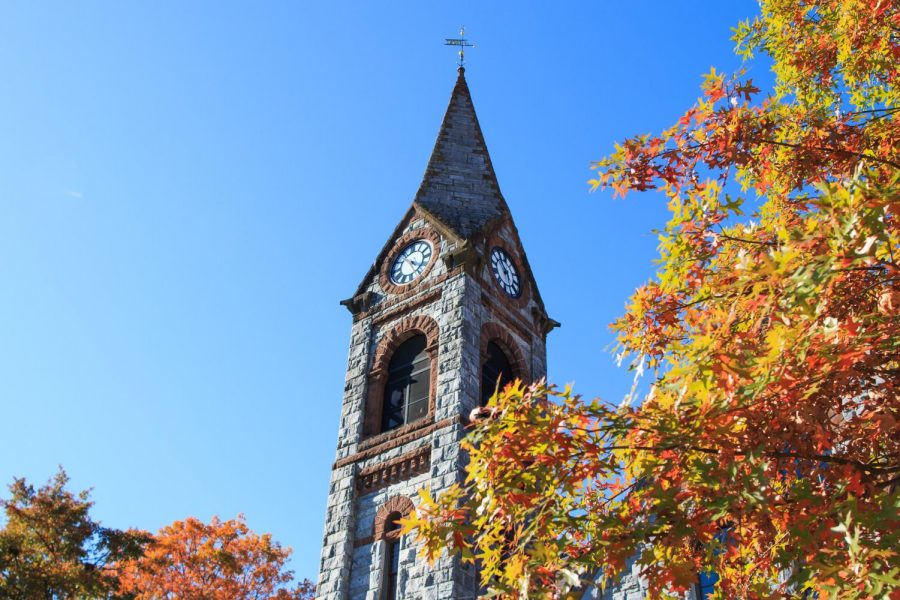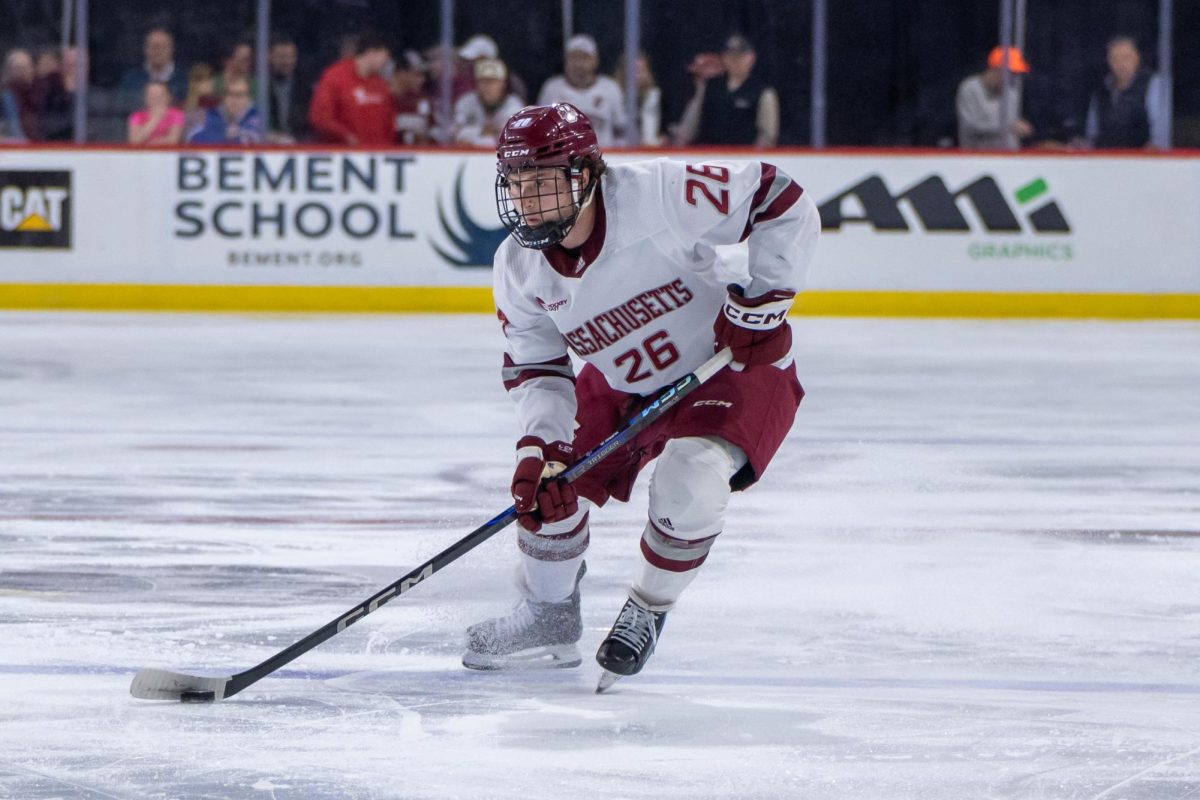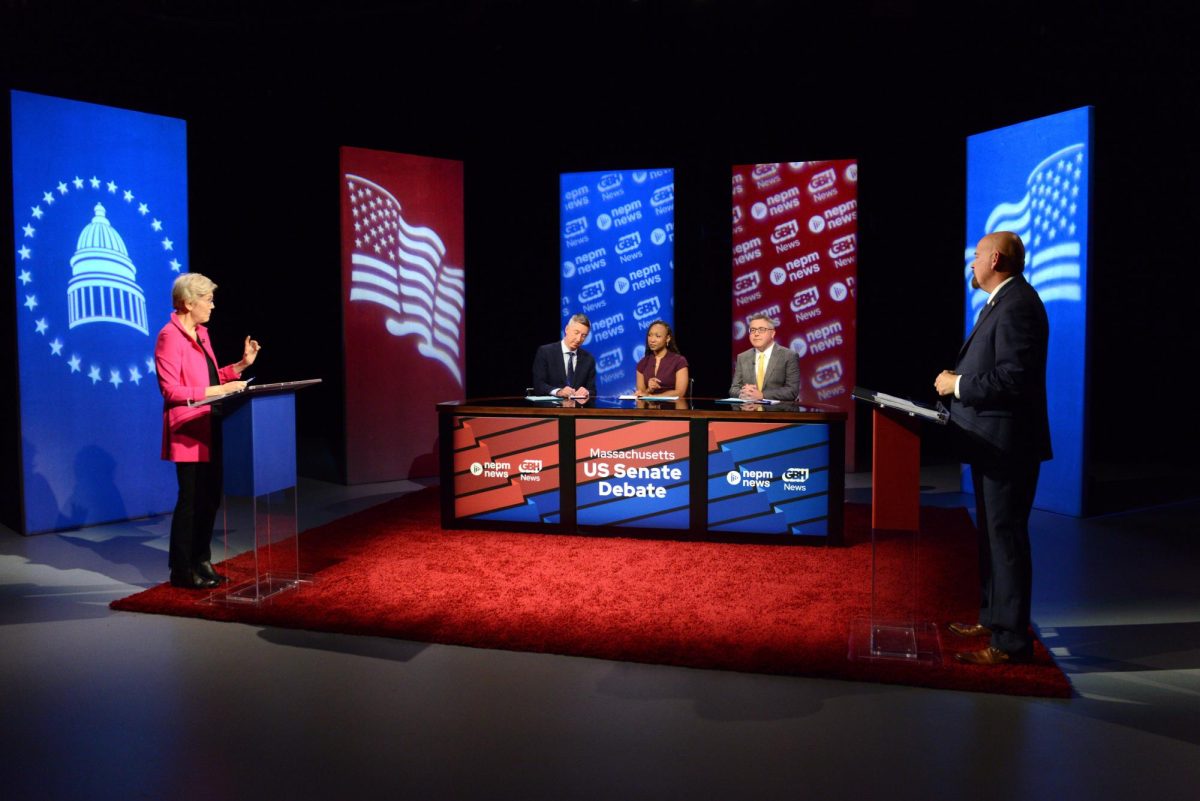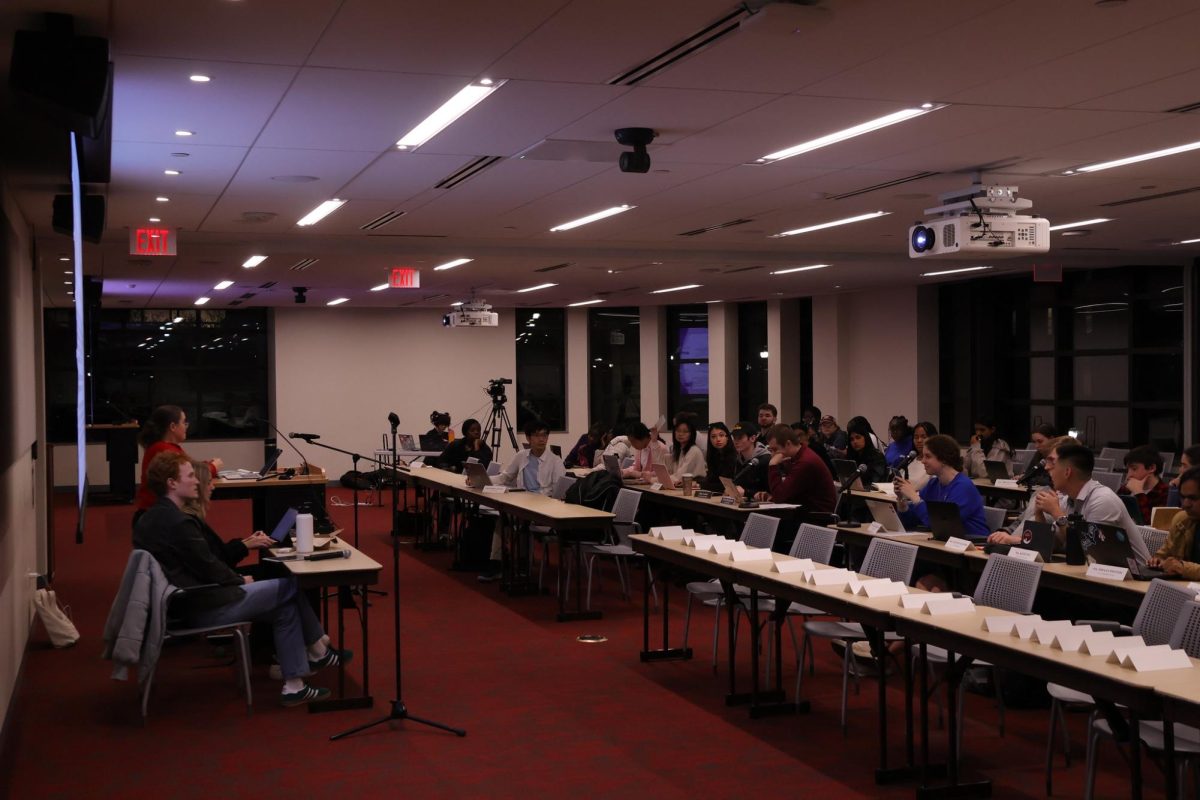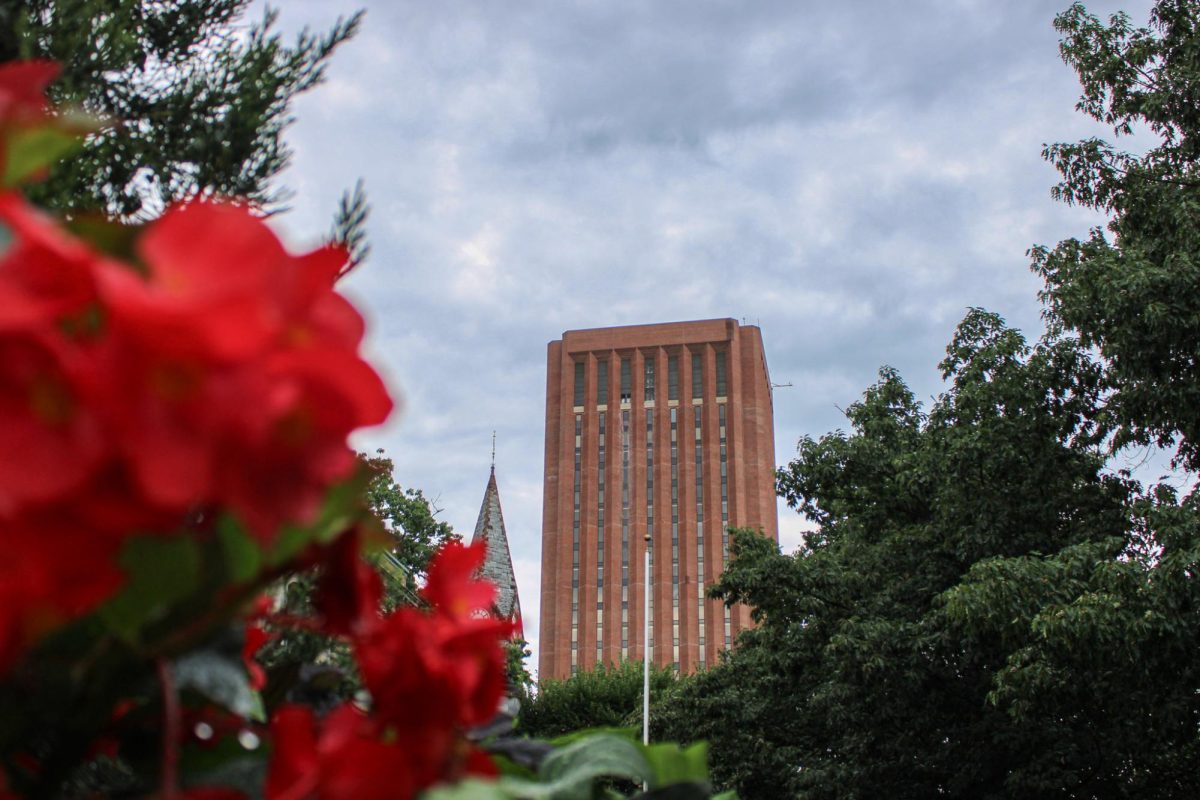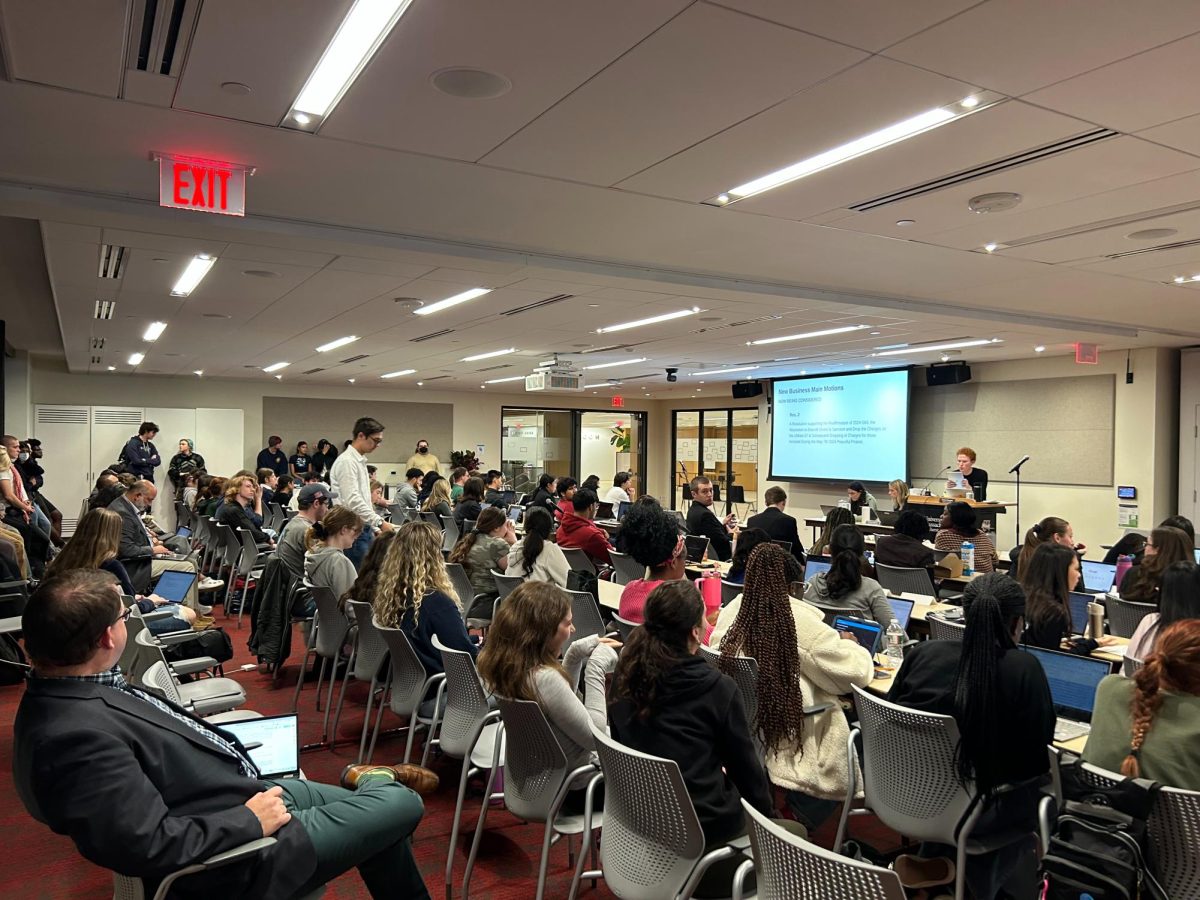On Sept. 12, 2001, the Massachusetts Daily Collegian reported on how the campus was coping with the previous day’s attacks in New York, Washington D.C. and Pennsylvania. “Most students gathered in solemn groups around the televisions playing CNN at the Bluewall, Student Union and Hatch food court refused to speak,” the article read. “Many were in tears, visibly upset, hugging one another.”
While Sept. 11, 2001 is often considered a day Americans will “never forget,” the majority of UMass students today don’t have anything specific to remember. 18 years later, a majority of students were only toddlers and some were not yet born when the attacks took place.
In classrooms, the decline in direct memory of 9/11 and the more recent developments in the Middle East and the United States continue to shape the way in which the event is taught to students. David Mednicoff, department chair of Judaic and Near Eastern Studies at the University, explained the event can’t necessarily be treated as a lived event, but recent history.
“This is not an event that is a direct trauma to most students. They don’t remember calling people to check if they’re safe …[they] didn’t necessarily mourn or grieve people who died in those events,” Mednicoff said. “Of course teachers have got to adapt.”
Hired in 1999, Mednicoff was a “fairly junior professor” in 2001. Today, Mednicoff serves as an associate professor of Middle Eastern Studies and Public Policy and teaches the University’s major survey course on the contemporary Middle East.
“Soon after it [the attacks] happened, it was just something that affected everybody on campus,” Mednicoff said. “We woke up to this crazy devastation.”
Speaking about his role as a professor, Mednicoff said, “When most faculty see people on campus in pain, we want to do something about that.” In 2002, as the campus held several commemorative events on the first anniversary, including a procession into the student union, Mednicoff began teaching a course titled “Explaining Terror: The US and the Middle East after 9/11.” For the next six years, the course allowed students to better understand and process the events.
“They have a lot of questions and a lot of empathy,” he said. “People have a lot of questions, people are interested. Students have a natural curiosity.”
By the early 2010s, the Arab Spring movement and social change in the Middle East inspired Mednicoff to develop a new course titled “Water, Oil, and Blood: The Middle East in Global Policy.” Initially intended as a more upbeat class about nonviolent revolution, the course has been shaped around the start of the Syrian Civil War and continuing instability, bad social conditions and anger towards Western countries.
“Those issues really continue and people see them, so my job really is to help people connect the dots,” Mednicoff said.
While 9/11 was included in the course, Mednicoff placed a larger emphasis on how major events like the attacks have changed and shaped the world students live in today. “Students,” he said, “need to understand this was a major kind of change even though you guys would have experienced its consequences as just as the way things were.”
By treating 9/11 as “historical rather than immediate,” Mednicoff focuses not on bringing the experience of the tragedy to students, but understanding how much has changed in daily life and foreign policy since 2001, both in the United States and the Middle East.
“I don’t see my job as causing people pain, certainly it’s important to make people feel safe, but sometimes I have to push students to be willing to explore things. I’m very grateful that I get to teach about the Middle East and issues related to the Middle East that might be controversial,” he said. “9/11 changed everything. The bottom line I’m trying to convey is it hasn’t changed back.”
Recognizing the challenge of the “information bubble” and toxic discourse present in day-to-day life, his course readings rely on recent and current sources which represent people in the Middle East and what people in the field are talking about. “I want students to see that US news [stories] are not the end of the story, [they] need to accept the story isn’t complete.”
“It’s not as easy as it seems to hear voices from the region or underemphasized voices in public debate,” Mednicoff said.
While the memory of 9/11 may not be as persistent in the classroom, Mednicoff said student engagement has remained consistent throughout his time at the University. “If anything, students have become more engaged.”
“The great thing about college students, the reason people like me so appreciate the opportunity to be a professor, is that you see something important in the world, you’re young, and you don’t react with cynicism,” Mednicoff said. “It’s upsetting to me to see what you have to deal with, but uplifting to see the concern around social justice that so many students have.”
Teaching 9/11 in the classroom does not just overcome lack of experience, but also misconceptions, requiring “some patience and sensitivity,” according to Mednicoff. In some instances, the professor has dealt with students who have argued the attacks never happened or were plants.
“It’s very hard. I really, really believe in using classroom time to encourage students to be open and to talk and feel like their views matter, but this is a broader problem in society today,” he said. “What do you do with something that’s really false?”
While Mednicoff will push the discussion forward, he said a main goal is keeping student engagement. Explaining some groups play up and push disinformation, he expects “at least some students who have heard or learned things at odds with what other people have done.”
Cheryl Duckworth, a professor of conflict resolution at Nova Southeastern University in Florida, told NPR in 2016 that curriculums at all levels of education needed to expand to include more aspects about 9/11 and its consequences.
“If we don’t address Sept. 11 in all its complexity,” she said, “stereotypes and misinformation will continue on both sides.”
Currently, Mednicoff is teaching a seminar on the origins and rise of Islamophobia and anti-Semitism. Six years ago, he said, he would not have been teaching the course, but students now feel unsafe. After the mass shooting at the Tree of Life Synagogue in 2018, Mednicoff organized and spoke at a teach-in to offer support for students.
“It doesn’t feel like in 20 years here, [issues related to the Middle East have] gotten less prominent. The way students experience things in the Middle East is just different,” he said. “Students are still interested in what’s going on.”
The move away from 9/11 as a lived event is echoed in on-campus remembrance. Since 2002, the Old Chapel bells have been rung at 8:45 a.m., 9:02 a.m., 9:45 a.m. and 10:03 a.m., the times of each plane crash. Mary Dettloff, a spokesperson for the University, said the Old Chapel Bells will also be rung this year by Richard Nathhorst, the campus carillon keeper.
“The University decided in 2002 to have an annual Sept. 11 remembrance, just like many cities, towns, organizations and educational institutions around the country,” Dettloff said.
Looking forward, Mednicoff said “mutual respect and listening” will remain a core part of his teaching. He added the best he could do was use his experience to moderate that discussion. He also hopes to move away from U.S. policy to teach more about contemporary Middle Eastern societies in depth.
“My aim has always been to highlight the excitement, the diversity, all the things that are exciting and upbeat about the region. World events have pulled me away from [that more] than I’ve wanted to be able to do.”
“Even with all the turmoil, I’ve had the good fortune of helping students connect to the Middle East,” he said.
Kathrine Esten can be reached at [email protected] and followed on Twitter at @KathrineEsten.

